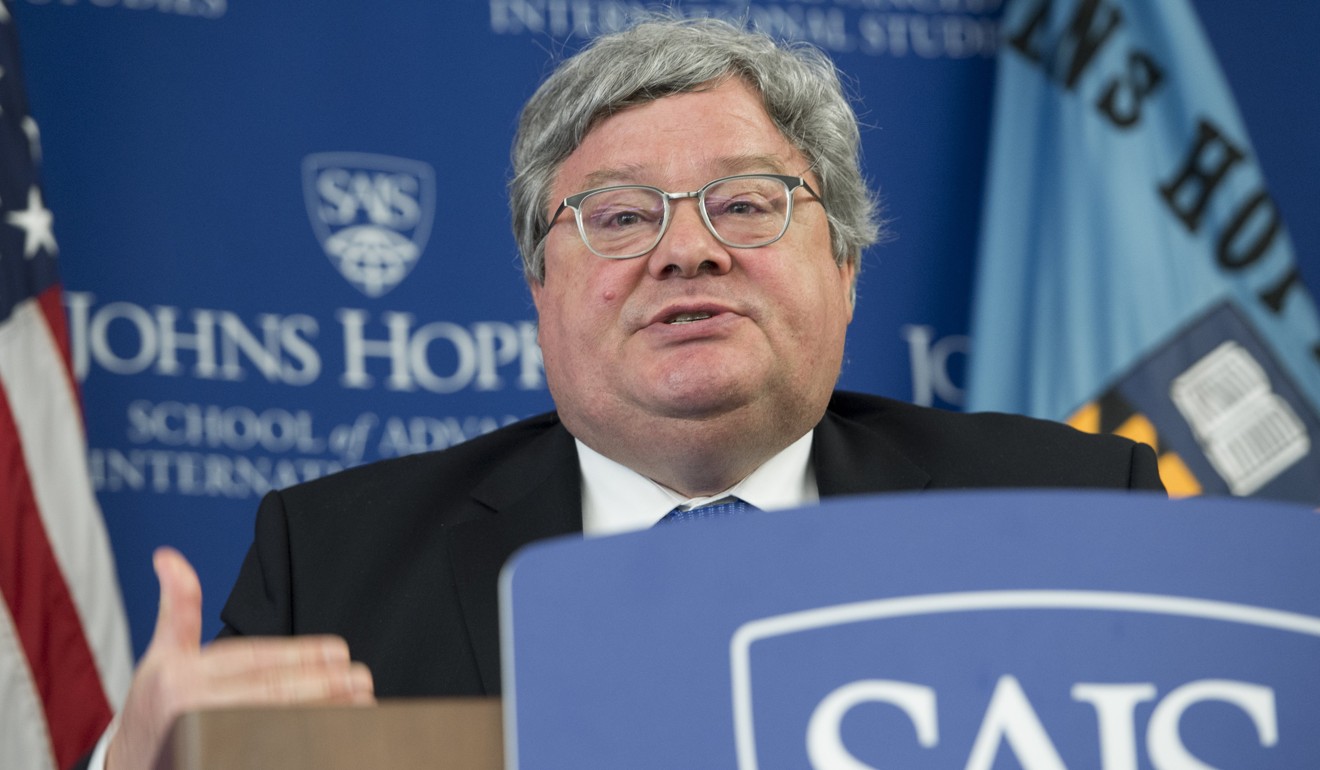EU’s China point man urges Hong Kong and Beijing leaders to listen after ‘powerful signal’ of elections
- City and central governments should act on calls for inquiry into police conduct and for universal suffrage, Reinhard Butikofer says
- But it is an illusion to fly British or other flags and think those countries can ride to Hongkongers’ rescue, he cautions

The head of China relations for the European Union’s parliament has called on leaders in Hong Kong and Beijing to heed “powerful signals from the democracy movement” following Hong Kong’s district council elections last Sunday.
Reinhard Butikofer, chair of the European Parliament Delegation for Relations with China, also said that the protest movement in Hong Kong retained broad support from the EU despite a lack of firm action by the bloc’s 28 member states since its legislature passed a strongly worded resolution on the subject in July. The motion condemned violence against protesters and called for export control mechanisms “to prevent access to technologies used to violate basic rights”.
“There is a need for the Hong Kong administration, for [Chief Executive] Carrie Lam [Cheng Yuet-ngor] and leaders in Beijing, to listen to what the people have been saying,” Butikofer told the South China Morning Post on Thursday.
“I think they should be moving on at least two counts: one is the independent inquiry into police brutality, and the other is universal suffrage. The European parliament supported both of those claims [in the text of its July resolution].”
He said the city’s district council elections last Sunday, which passed peacefully and brought sweeping gains for the pro-democracy bloc, sent a clear message.
“The lopsided, landslide win is an extremely powerful signal of support for the democracy movement by a vast majority of Hong Kong citizens,” he said.
“What we can do is signal very clearly to Beijing where we stand, and that we would not accept business as usual, if they decided to continue ignoring the voice of Hong Kong and using inappropriate violence to extinguish the democracy movement.”
However, Butikofer said that, while the EU would continue to support Hong Kong protesters’ calls for greater democracy, the city’s people were capable of making their own case.

“The success of the democracy movement in Hong Kong depends on the citizens of Hong Kong,” he said. “I think we should not foster the misunderstanding that somehow by flying British or other flags, this will change the trajectory of the process.
“It would be an utter illusion to assume that somebody from outside would ride to their rescue. It is the responsibility of Hongkongers, and something they are able to do, to fight a valiant fight for their own justified goals.”
The EU’s July resolution is not legally binding and few member states followed up on its calls to act. An exception was Britain, whose foreign office said domestic legislation would be introduced to allow sanctions to be imposed against individuals responsible for human rights abuses in Hong Kong.
“Since we had the resolution in July, very few member states have in fact moved on withholding some technology that might be supportive of oppression,” Butikofer said, citing enthusiasm in the EU’s parliament but less in its executive branch. “The British have moved in that direction, but other than that, we have not been able to move forward on other issues.”
The European Parliament’s move has been followed by legislation in the United States, where President Donald Trump on Wednesday signed into law the Hong Kong Human Rights and Democracy Act and the Protect Hong Kong Act. The former could pave the way for diplomatic action and economic sanctions against the city’s government, while the latter prohibits the sale of US-made munitions such as tear gas and rubber bullets to its authorities.
Butikofer had doubts about Trump’s personal support for the US legislation.
“I would argue that Trump, in signing the bill, did not so much express support for the democracy movement in Hong Kong as express despair over not getting a trade deal,” Butikofer said, referring to negotiations between Beijing and Washington to strike an interim agreement to partly resolve their tariff war.
Days before Trump signed the bipartisan Hong Kong Human Rights and Democracy Act, he appeared to balance it with a conciliatory gesture to Chinese President Xi Jinping, saying: “We have to stand with Hong Kong, but I’m also standing with President Xi.”
The Chinese government has strongly criticised the US for passing and signing the democracy act, warning of unspecified consequences for Washington.
Trump had the right to exercise a presidential veto to stop the act, but it would have required the backing of the US Congress, where there was near-unanimous support for the legislation.
“In Europe, it’s the parliament that pushes the agenda, and in the US, it’s Congress,” Butikofer said. “And on either side the executive branch of government is not as eager to move decisively.”
The EU’s executive, the European Commission, comprises the 28 member nations’ heads of state and the commission president.
According to Butikofer, EU lawmakers are set to shift their attention to a long-term goal of passing laws that allow sanctions against abusers of human rights worldwide – which could be applied to Hong Kong, among others. Passing that legislation could take a year or more.